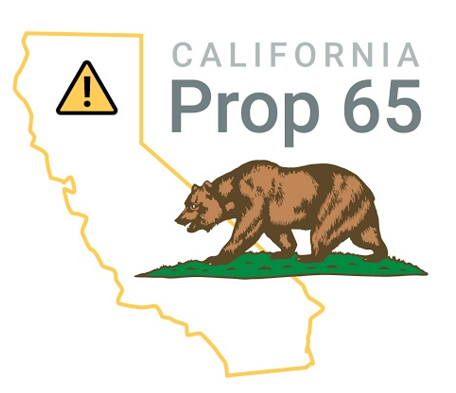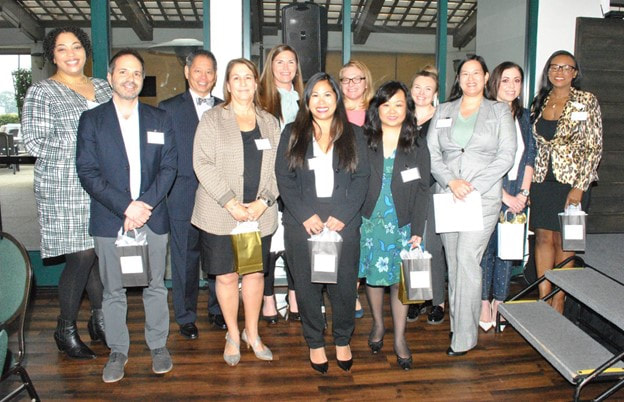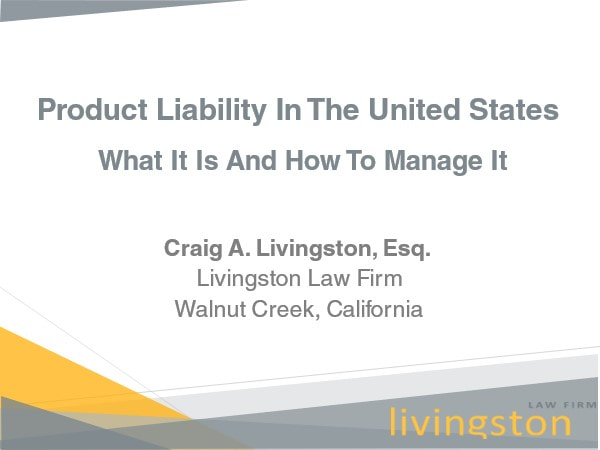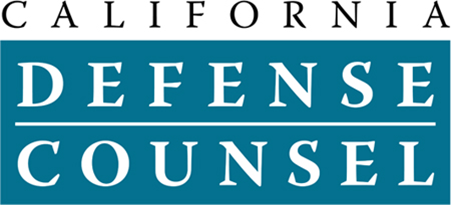|
Livingston Law Firm shareholder Craig Livingston recently addressed several committees of the Sporting Arms and Ammunition Manufacturers Institute at the 2024 SHOT Show in Las Vegas.
Part of Craig’s presentation included a discussion of the revisions to Prop 65 short-form warnings proposed by California’s Office of Environmental Health Hazard Assessment (OEHHA). Those revisions, which will be adopted in some form in 2024, will force manufacturers to again revise warning conventions in use since 2018. Craig’s article, entitled “Déjà Vu All Over Again: Prop 65 “Short-Form” Warning Changes,” summarizes the adoption of Prop 65 short-form warnings, OEHHA’s latest proposed revisions, and what manufacturers might expect to see when the final rules are adopted. To read the full article click here.
Livingston Law Firm receives Diversity, Equity and Inclusion award from Contra Costa Bar Association1/19/2024
Livingston Law Firm was recognized by the Contra Costa County Bar Association for its 2023 diversity, equity and inclusion efforts within the legal community and throughout Contra Costa County. CCCBA began recognizing law firms in 2017 that cultivate diversity, equity and inclusion through internal, external and recruiting activities, and LLF has received the award each year! Crystal Van Der Putten accepted the silver level award on behalf of the firm at the CCCBA annual installation luncheon.
Livingston Law Firm shareholders Craig Livingston and Crystal Van Der Putten today filed an amicus curiae brief in the Pennsylvania Supreme Court on behalf of client The National Shooting Sports Foundation, Inc. in the case of Gustafson v. Springfield Inc., et al. At issue in Gustafson is the application of the federal Protection of Lawful Commerce in Arms Act (PLCAA) [15 U.S.C. §§ 7901, et seq.] to a wrongful death action in which a Springfield Arms pistol was used by a teenage boy who accidentally shot and killed his friend and who was thereafter adjudicated a delinquent minor for involuntary manslaughter. Congress enacted the PLCAA in 2005 to prevent lawsuits against manufacturers and sellers of firearms and ammunition when those products are unlawfully or criminally misused. The trial court dismissed the case citing the PLCAA, but the intermediate appellate court reversed. The reversal was upheld by an en banc panel. In its supreme court brief, LLF argued that the product liability exception in the PLCAA – an exception allowing traditional design and manufacturing defect claims to proceed – was inapplicable because the underlying shooting death was the result of a volitional act which constituted a criminal offense, even though the shooter believed the pistol was unloaded when he pointed it at the decedent and deliberately pulled the trigger. Further briefing in the Pennsylvania supreme court is expected and a decision is unlikely until later this year.
Congratulations to LLF shareholders Crystal L. Van Der Putten and John C. Hentschel. After five years of litigation, a directed verdict on alleged actual damages and business torts, and a 3+ week jury trial in Contra Costa County Superior Court, they received a defense verdict in a defamation per se action that included allegations of conspiracy. The key questions in the case were whether various statements the defendant made were actionable defamation and whether the other two named defendants conspired with her to defame plaintiffs. In less than six hours of deliberation, the jury determined the statements were not defamatory. Because the jury found no defamation, there could be no conspiracy. As such, the jury returned a verdict for the defendants. LLF recovered $110,000 in expert fees and costs. Fairmont Riding Club, et al. v. Pestana, et al. (Contra Costa County Superior Court Case No. MSC17-00630).
Livingston Law Firm is proud to announce John C. Hentschel has become a shareholder of the firm. After graduating from USF Law School in 1990, John honed his trial skills at a reputable plaintiff firm before moving to the defense side. He joined Livingston Law Firm in 2010 and immediately became an integral part of the firm. John handles some of the firm’s most complex legal matters and deftly develops and implements litigation strategy that positions the firm’s clients for best results. John is a consummate trial attorney, a trusted colleague and a skilled negotiator in addition to being an all-around great guy. For more information about John and his legal accomplishments, click here. Congratulations John!
Renée Welze Livingston Elected Officer on the Board of Directors for the California Defense Counsel12/9/2021
|
Archives
February 2024
Categories
|




















